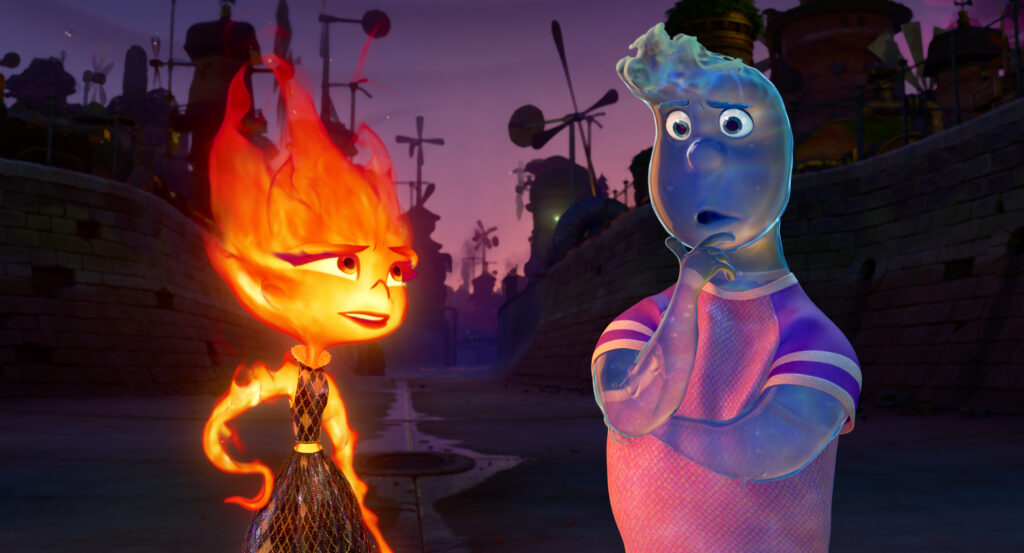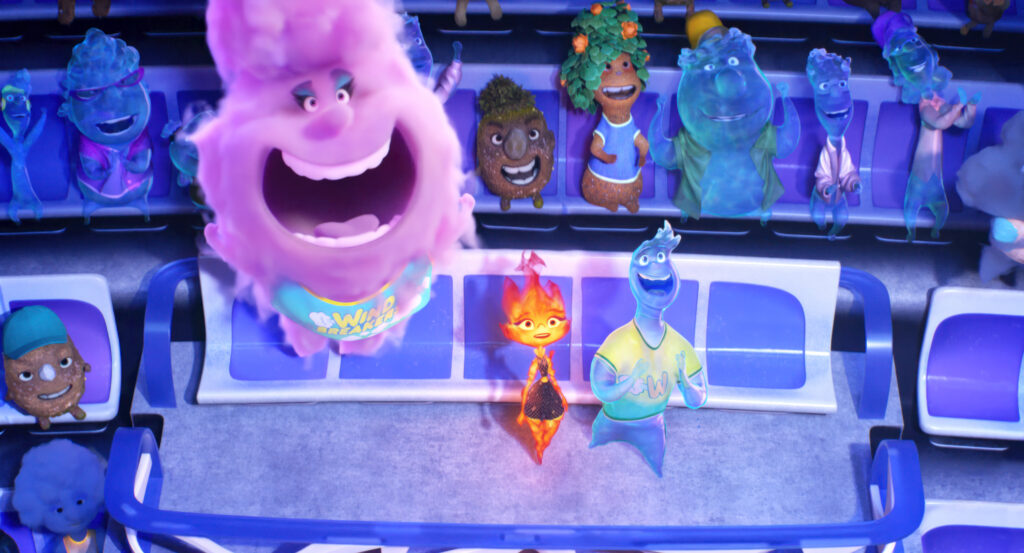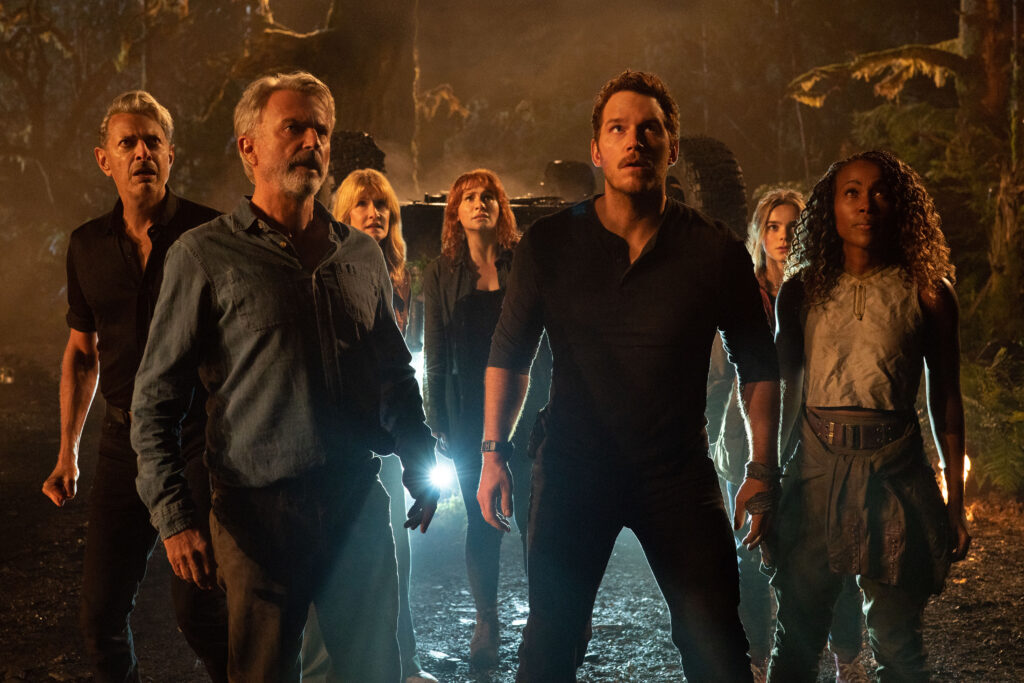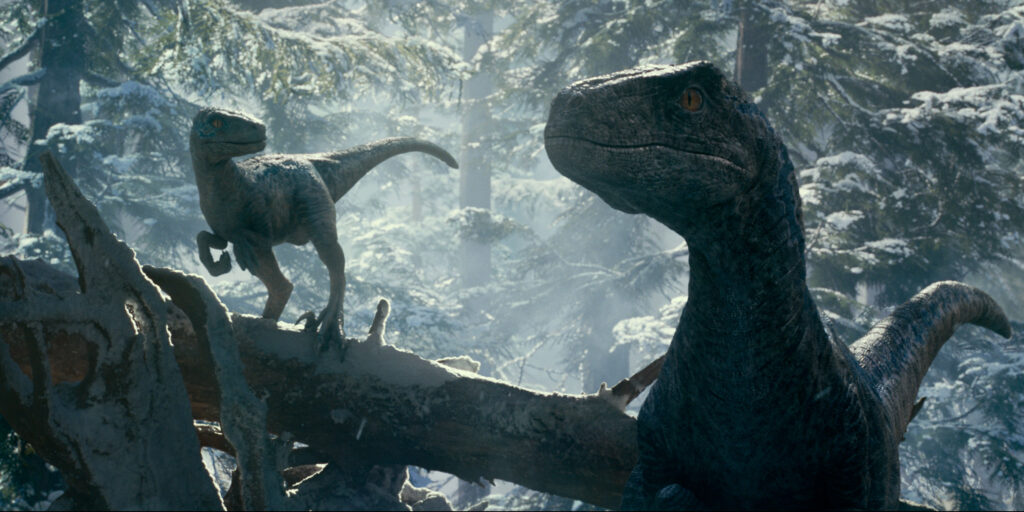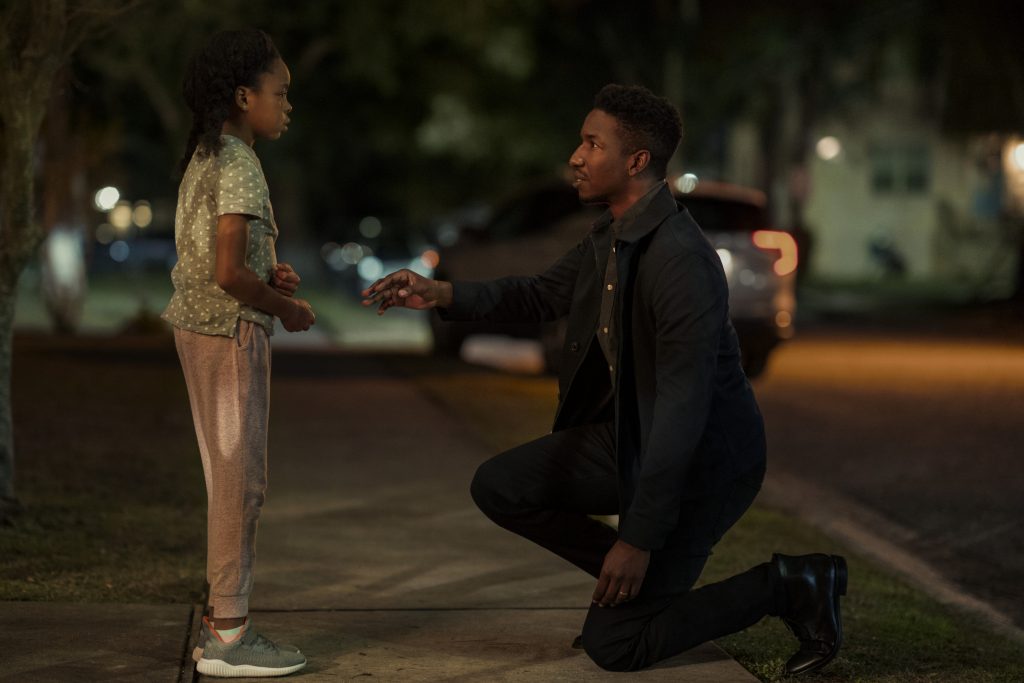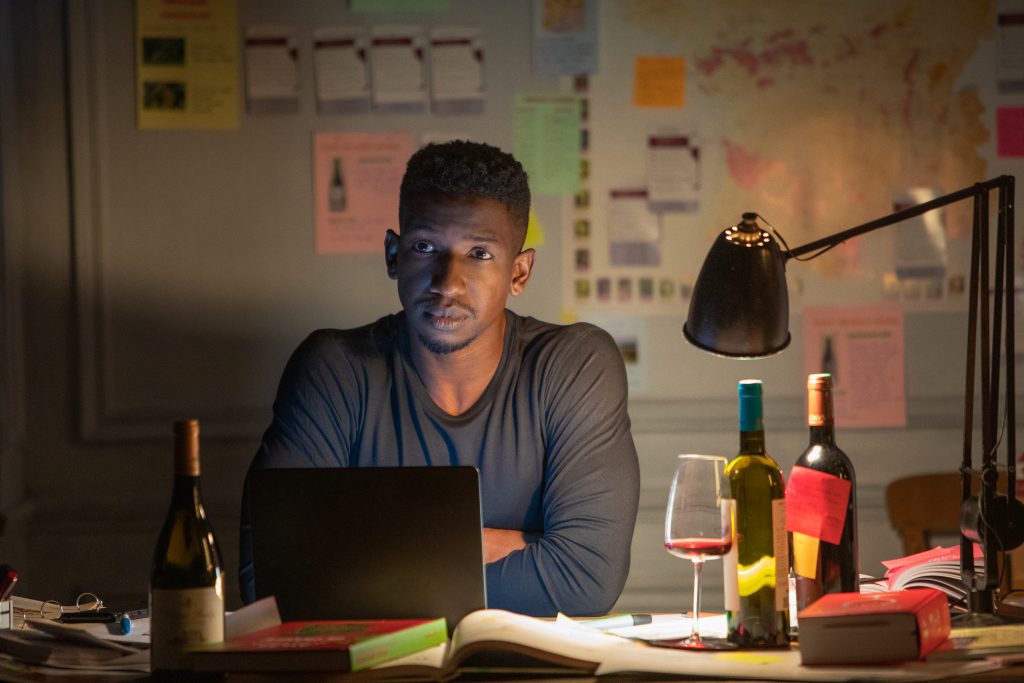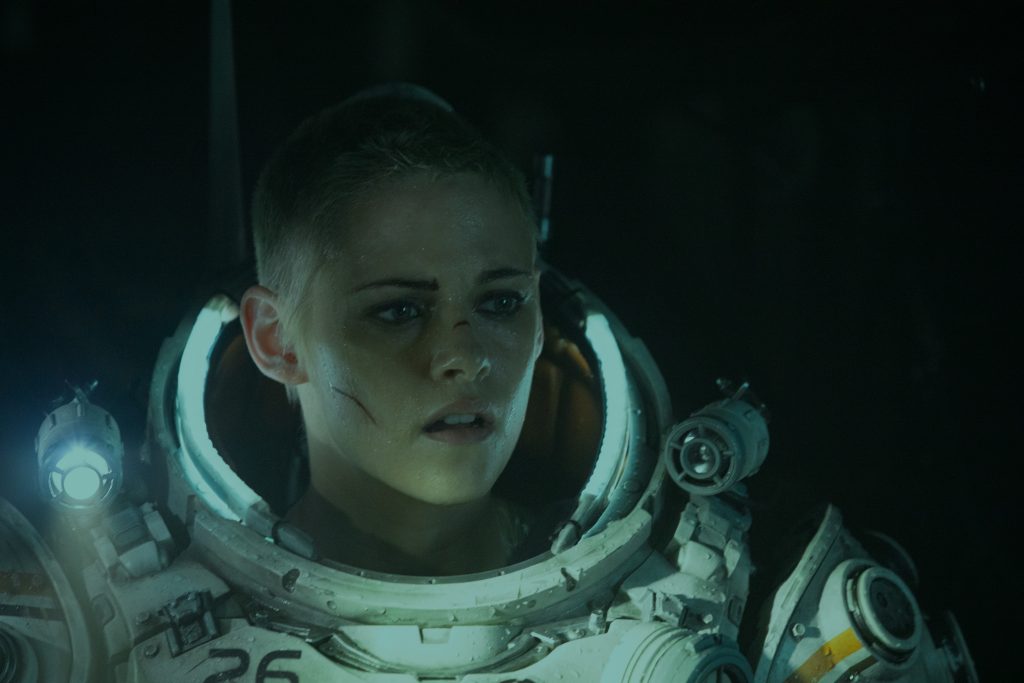October 13, 2023
by Carla Hay

Directed by Maggie Betts
Culture Representation: Taking place 1995, in Mississippi, Florida, and Canada, the dramatic film “The Burial” (based on The New Yorker’s 1999 article of the same title) features a white and African American cast of characters portraying the working-class, middle-class and wealthy.
Culture Clash: A hotshot attorney, whose specialty is personal injury, is persuaded to take a contract litigation case for a small business owner of a funeral company who is suing a corporate giant for reneging on a deal to buy part of the business.
Culture Audience: “The Burial” will appeal primarily to people who are fans of star Jamie Foxx, courtroom dramas, and movies about underdogs battling against corporate bullies.

Taking place in 1995, “The Burial” is just like great courtroom drama movies of the 1990s. Jamie Foxx shines in this true story about a flashy and persistent attorney representing a small business owner who’s suing a corporate giant in the funeral industry. Although “The Burial” is based on real events, a few minor details were changed for movie. The overall story (the names of the real people are in the movie) and the outcome of the trial are depicted in the film accurately. It’s the type of story where the outcome would be hard to believe if it didn’t happen in real life.
Directed by Maggie Betts, “The Burial” had its world premiere at the 2023 Toronto International Film Festival. Betts co-wrote “The Burial” screenplay with Doug Wright, which they adapted from The New Yorker’s 1999 article “The Burial,” written by Jonathan Harr. It’s a classic story of an underdog taking on a seemingly impossible challenge and … well, you can probably figure out the rest if you know why this story was made into a movie.
That doesn’t mean “The Burial” is dull. Far from it. There’s enough comedy to balance out the most serious moments, while the movie’s screenplay and direction can hold viewers’ interest—especially viewers who are inclined to like dramas about legal cases. And the acting performances are well above-average from this very talented ensemble cast.
“The Burial” also takes viewers behind the scenes to show how trial attorneys on the same legal team not only have opponents in a courtroom, but they also sometimes have major conflicts with people on the same team. Beyond the actual legal case, “The Burial” also has realistic observations and depictions of race relations as well as the corrupt methods of corporate sharks. The movie has classic themes of underestimated people who don’t give up, even when faced with seemingly impossible obstacles.
The opening scene of “The Burial” begins not in a courtroom but in a church: Calvary of Love Baptist Church in Indiantown, Florida, to be exact. Confident attorney Willie E. Gary (played by Foxx) is a guest speaker because the church’s pastor Albert, who is Willie’s brother, asked Willie to be the guest speaker. Willie is a natural showman who gives passionate and rousing speeches, which is one of the reasons why he’s a successful attorney who thrives in the courtroom. It’s mentioned later in the movie that Willie hasn’t lost a case in 12 years.
During his speech at the church, Willie declares what makes churches with a mostly black congregation different from other churches: “In Black Church, they don’t say, ‘I fit the description.’ In Black Church, they don’t judge me because of the color of my skin. In Black Church, they don’t call me out my name. And if they do call me out my name, do you know what they call me? They call me a child of God!”
Meanwhile, in an entirely different setting, in Biloxi, Mississippi, a large family birthday party is happening at the home of businessman Jeremiah “Jerry” O’Keefe (played by Tommy Lee Jones), who is celebrating his 75th birthday. Jerry and his loyal and loving wife Annette O’Keefe (played by Pamela Reed) have 13 children and 24 grandchildren. It looks like most if not all of these descendants are at this party.
Jerry and Annette have a private conversation while observing their family members from afar, with Jerry proudly saying of their descendants: “Not one felony in the whole damn bunch.” This seemingly blissful family event is a happy moment for Jerry, but he’s been experiencing some tough financial times that he hasn’t disclosed yet to Annette.
Jerry is the leader and sole owner of the family-owned Bradley-O’Keefe funeral business that he inherited from his father. The business, which has been in Jerry’s family for about 100 years, has eight funeral homes and one insurance company throughout Southern Mississippi. The burial insurance company is the most profitable entity of the business and keeps the funeral homes operating when the funeral homes are experiencing a decline in finances. Jerry plans to keep the business owned by his family.
As part of Mississippi state law, in order to keep his business license, Jerry has to maintain a minimum bank balance for his business. (The amount is not mentioned in the movie.) Recently, the bank balance for Bradley-O’Keefe has reached below that minimum. And so, Jerry has had visits from state licensing board officials, who warn Jerry that his license could be suspended if he doesn’t bring up the bank balance to at least the minimum amount.
Jerry has a meeting with his longtime trusted attorney Mike Allred (played by Alan Ruck) about this financial predicament. Mike, who has been Jerry’s attorney for almost 30 years, suggests that Jerry sell off part of the Bradley-O’Keefe business in order to get the cash that Jerry needs. Jerry vehemently disagrees because he made a promise to himself to never sell any part of the business.
But when Mike tells Jerry about a wealthy Canadian businessman named Ray Loewen (played by Bill Camp) who would be willing to buy three of Jerry’s funeral homes at more than their fair market value, Jerry agrees to go to Vancouver to have an in-person meeting with Ray. At this time in 1995, Ray is the president/CEO of the Loewen Group, which has been buying up funeral homes across Canada and the United States. By 1995, the Loewen Group owned more than 1,000 funeral homes and had a market value of about $3 billion. Ray is the chief shareholder of the Loewen Group.
“The Burial” adeptly shows how two very different men—Willie Gary and Jerry O’Keefe—living in two different U.S. states, and living very different lifestyles, crossed paths and ended up working together on a landmark business case. When Jerry and Mike go to Vancouver, they are accompanied by Hal Dockins (played by Mamoudou Athie), a young and eager-to-impress attorney who is a friend of one of Jerry’s sons. Jerry has hired Hal to tag along and learn what he can from Mike.
Mike immediately has a condescending attitude toward Hal because he thinks this neophyte can’t possibly be helpful to Jerry. However, time and time again, Hal proves to be much smarter than Mike in almost every way. Mike gives Jerry bad advice, while Hal is the one who has insight and ideas that prove to be crucial to this case. There is more than a little racial condescension that Mike shows to Hal when interacting with him. Things are revealed in the movie that show why Mike’s racial prejudice is real.
The business meeting with Ray takes place on Ray’s yacht. Ray’s conversation shows he has the personality of greedy sociopath. Jerry is concerned about Ray’s callous attitude about the grieving people who are the customers of the funeral business. Ray tells Jerry that the real customers are the dead people who need funerals. Ray openly tells Jerry that he’s only investing in the funeral business to wait for what Ray calls The Golden Era of Death: the years when Baby Boomers (the large population of people born between 1946 and 1964) start dying, which will lead to an increase in demand for funeral businesses.
Despite his reservations about doing the deal, Jerry needs the money and agrees to a contract where Jerry will sell three of his funeral homes to Ray, on the condition that Ray not own or operate any burial insurance business in Southern Mississippi. Ray, who did not sign his part of the contract, postpones closing the deal for months. Hal correctly figures out that this is Ray’s way of making a cash-strapped Bradley-O’Keefe go out of business, thereby giving Ray the opportunity to swoop in and buy all of Bradley-O’Keefe.
Jerry is so angry and insulted that he decides to sue Ray and the Loewen Group for breach of contract. Mike thinks it’s a bad idea, but Jerry files the lawsuit anyway. Mike is not really skilled as a trial attorney, so he doesn’t want the case to go to trial. However, Jerry does not want to settle the lawsuit out of court. Who will be the trial lawyer for Jerry?
Hal happens to sees Willie featured on the TV interview series “Lifestyles of the Rich and Famous,” where Willie’s success and wealth (including his own private jet) are on full display. Willie and his wife Gloria Gary (played Amanda Warren) are presented as a luxury-loving couple with a strong and healthy marriage. Hal comes up with the unorthodox idea to hire Willie, based on what Hal sees of Willie on TV. The big problem is that Willie’s specialty is handling personal injury cases, not contract litigation cases.
Mike and Jerry are skeptical that Willie is the right lawyer for the job. Hal convinces them to watch Willie work his magic in a courtroom setting. And so, the three of them travel to Florida to sit in a courtroom and watch Willie represent a plaintiff in a personal injury case. During his closing arguments, Willie wins over a jury in a case where Willie is representing a plaintiff named Clovis Tubbs, who was hit by a Finch & Co. Food Servies truck while suicidal Clovis was deliberately riding the wrong way on his bicycle. Willie works the courtroom like a preacher works a church full of devoted followers.
Hal convinces Willie to meet with him and Jerry at Willie’s office. Willie flatly turns down Jerry’s offer to hire him for Jerry’s lawsuit, which was filed in a low-income, predominantly African American city in Florida. Willie says one of the reasons he doesn’t want to take the case is because he doesn’t do contract litigation cases. The other reason, as Willie bluntly tells Jerry: Willie has never had a white person as a client. Willie’s “yes man” colleague Reggie Douglas (played by Dorian Missick), who is in the room during this meeting, echoes Willie’s statements.
Jerry seems to accept this rejection, but Hal is not easily defeated. While Jerry waits outside, Hal spontaneously goes back to Willie’s office by himself for one last chance to convince Willie to represent Jerry in this case. Hal lists a number of reasons why, including Jerry’s war hero status that makes Jerry a sympathetic client. Most of these reasons aren’t enough to convince Willie to take the case.
But what sticks with Willie is what Hal has to say about how this case could change the legal community’s perception of Willie as being a “glorified ambulance chaser.” And what really seals the deal is when Hal tells Willie that winning this case could make Willie as famous as Johnnie Cochran, who was famously representing O.J. Simpson at the time in Simpson’s murder trial. It’s a “one-two punch” argument that scores a knockout for Hal. Obviously, it’s not spoiler information to say that Willie decides to become Jerry’s attorney for the case.
The rest of “The Burial” involves some twists and turns and highs and lows for both sides of this lawsuit. Mike and Willie immediately clash over who will be the lead attorney. It leads to some hard feelings when Jerry decides Willie should be the lead attorney, since Willie is more skilled at trial/courtroom work. Mike is the attorney who keeps pushing for Jerry to settle the lawsuit.
Willie’s Florida-based team includes Reggie, Al Jones (played by Tywayne Wheatt) and Dashaan Williams (played by Keith Jefferson), who have to spend a lot of time in Mississippi to prepare for the case. (“The Burial” was actually filmed in Louisiana.) The racial tensions are obvious, since everyone on Willie’s team is African American, while everyone on Mike’s team is white. Hal is somewhere in the middle and is often the voice of reason when Mike and Willie inevitably have conflicts with each other.
How is Jerry paying for all of these lawyers? As he tells a shocked Annette (who is the type of wife who lets her spouse handle all the household finances), Jerry took out a third mortgage on their house without consulting her in advance. She gets upset, but there’s nothing she can do about it, because Jerry has a pattern of telling her these things after he’s already made decisions that are out of her control.
In the courtroom, the Loewen Group is represented by an all-African American team of attorneys, led by Mame Downes (played by Jurneee Smollett), a Harvard-educated lawyer who has the nickname The Python because of her cross-examination style. In a meeting with Jerry’s legal team, Willie quips when he finds out about this nickname: “Okay, Miss Python. I’m a boa constrictor.”
Also on the team of the Loewen Group attorneys are Howard Phifer (president of the Washington, D.C. Bar Association); business litigation expert Richard Mayfield (played by Doug Spearman); and former Mississippi Supreme Court justice Walter Bell (played by Gralen Bryant Banks), who are essentially side characters who don’t say much in the movie. Mame becomes Willie’s chief opponent in this courtroom battle. She gets the most screen time and the best lines of dialogue out of all the Loewen Group’s defense attorneys in this case.
The issues of racism, the abuse of power and economic exploitation are constantly mentioned and shown in the movie because they are intertwined with the facts of the case. Jerry is initially very naïve in thinking that race shouldn’t and doesn’t matter in this case, even though most of the jury will be African American. Hal tactfully tries to educate Jerry about racism issues that a 75-year-old upper-middle-class white man in America usually doesn’t have to experience on an everyday basis.
“The Burial” has a few courtroom scenes that look exaggerated for a movie, especially when people break out into applause, as if it’s a concert, not a courtroom. No self-respecting judge would let a courtroom get that out of control. The movie’s Judge Graves (played by Lance E. Nichols) is secondary to the back-and-forth sparring between the attorneys. After all, “The Burial” has Willie as the co-lead protagonist.
A key insight into Willie’s personality is when he tells Jerry and his legal team at one point in the movie: “I’d rather have somebody blow my head off than lose a case.” As cocky and brash as Willie can be, he also learns some lessons in humility. Jerry also has his stubborn ways that are tested when most people in his life advise him to do one thing, but he does the opposite. The lawsuit puts a strain on the marriage of Jerry and Annette, who thinks that Jerry’s determination to win the case has become an obsession they can’t afford.
Despite all the conflicts shown in “The Burial,” some of the highlights of the movie include the camaraderie on Willie’s team. There’s a scene on Willie’s private jet where Willie introduces Jerry to the music of R&B group Tony! Toni! Toné!, whose 1990 hit “Feels Good” is played on the plane. This song is used later in one of the movie’s funnier scenes. Although the case is a serious matter, “The Burial” has touches of comedy that are well-acted and look organic, not forced, thanks to the talented cast members.
Willie is obviously the movie’s most flamboyant and charismatic character. However, rather than making him a parody of a successful attorney with a huge ego, Foxx brings depth and realistic humanity to this character. Underneath his arrogant persona, Willie is still dealing with painful issues.
There are a few scenes in the movie when Willie tells people about his memories of growing up poor and helping his sharecropper father work in the fields when Willie was 8 years old. In another scene, Willie tells Jerry about experiencing a racism incident that motivated Willie to become an attorney. And even with all of his success, Willie mentions a few things that remind him that he will never escape racism.
Smollett is one of the movie’s strong points as the tough and calculating Mame, while Jones gives a solid performance as Jerry, even though Jones has played many “cranky old men” roles already. Athie gives a low-key but meaningful performance as the even-tempered and self-assured Hal, the most underrated hero of this movie. Hal does not seek to get much of the credit that he deserves. The real Willie Gary has a brief cameo as a character called Mr. G.
Viewers of “The Burial” who don’t know the real-life outcome of the case will be more inclined to get swept up in the suspense when there are certain pitfalls experienced by certain people in the case. Betts’ direction gives “The Burial” the right pacing and tone in this well-cast drama that’s not just about a legal case. “The Burial” is also a lesson in how staying true to one’s own values can be more valuable than a high-priced team of attorneys in a lawsuit.
Amazon Studios released “The Burial” in select U.S. cinemas on October 6, 2023. Prime Video premiered the movie on October 13, 2023.

